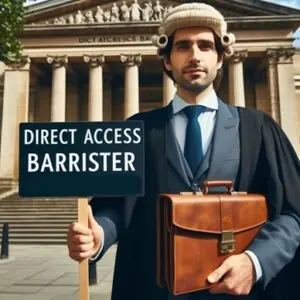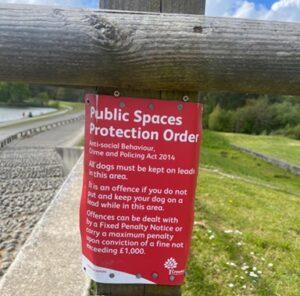Debt Collectors and Bailiffs are both related to the process of collecting debts from individuals and businesses that owe money to creditors.
In the UK, a debt collector is a person or company who is hired by a creditor to recover money that is owed to them by a debtor. Debt collectors may work directly for the creditor or may be hired by a third-party debt collection agency.
Debt collectors use various methods to try to recover the money owed, such as making phone calls, sending letters, and visiting the debtor’s home or workplace. They may also use legal means, such as taking the debtor to court or applying for a County Court Judgment (CCJ) against them.
However, it’s important to note that debt collectors must follow strict rules and regulations set out by law when collecting debts. For example, they must not use aggressive or threatening behaviour, must not contact debtors at unreasonable times, and must not discuss the debt with anyone other than the debtor or their representative.
A debt collector doesn’t have any special legal powers to collect a debt, whereas a bailiff does.
Bailiffs are individuals who are authorized to enforce the collection of debts by seizing goods or assets owned by the debtor, while debt collection is a process by which creditors attempt to recover the money owed to them by the debtor.
Bailiffs, also known as enforcement agents, are appointed by the courts to enforce judgments and orders made against debtors. They are usually employed by debt collection agencies or private companies, and their primary role is to recover debts owed to creditors.
Bailiffs have the legal power to enter a debtor’s property and seize goods or assets in order to satisfy the debt owed. They can also take control of the debtor’s vehicle or other assets that are held on a public highway.
The use of bailiffs to collect debts is governed by various laws and regulations in the UK. The main legislation that covers the use of bailiffs is the Tribunals, Courts and Enforcement Act 2007, which sets out the rules and procedures that bailiffs must follow when enforcing debts. Under this legislation, bailiffs are required to give a debtor at least seven days’ notice before attending their property to seize goods. They are also required to provide proof of their identity and authority, and they must provide a full inventory of any goods that are seized.
Another important aspect of debt collection in the UK is the use of Individual Voluntary Arrangements (IVAs). An IVA is a formal agreement between a debtor and their creditors that allows the debtor to repay their debts over a set period of time. IVAs are typically used by individuals who are unable to repay their debts in full and who want to avoid bankruptcy.
The process of setting up an IVA usually involves the services of a solicitor, who will work with the debtor and their creditors to negotiate a repayment plan that is affordable for the debtor.
Solicitors play a key role in the debt collection process in the UK, particularly when it comes to the use of IVAs. They are legal professionals who specialize in advising clients on matters related to debt collection and other legal issues.
Solicitors can help debtors to negotiate with their creditors, and they can also provide legal advice on the various debt relief options that are available.
In addition to the legislation that governs the use of bailiffs, there are also a number of other laws and regulations in the UK that are designed to protect debtors from unfair practices.
These include the Consumer Credit Act 1974, which sets out the rules that creditors must follow when lending money to consumers, and the Financial Conduct Authority’s (FCA) rules on debt collection, which are designed to ensure that creditors and debt collection agencies treat debtors fairly and transparently.
One of the key rules set out by the FCA is that creditors and debt collection agencies must treat debtors with respect and dignity, and they must not use aggressive or threatening behavior to collect debts. They are also required to provide debtors with clear information about the debts they owe, including the amount owed, the interest rate, and any fees or charges that apply. Debtors have the right to challenge the amount of the debt if they believe it is incorrect, and they can also request a payment plan if they are unable to pay the debt in full.
In conclusion, bailiffs and debt collection are two important aspects of the process of collecting debts in the UK. Bailiffs are authorized to enforce the collection of debts by seizing goods or assets owned by the debtor, while debt collection is a process by which creditors attempt to recover the money owed to them by the debtor. The use of bailiffs to collect debts is governed by various laws and regulations, including the Tribunals, Courts and Enforcement Act 2007, which sets out the rules and procedures that bailiffs must follow when enforcing debts. Solicitors and Individual Voluntary Arrangements (IVAs) also play a key role in debt collection, particularly when it comes to negotiating repayment plans with creditors.
There are also a number of laws and regulations in the UK that are designed to protect debtors from unfair practices during the debt collection process. These laws include the Consumer Credit Act 1974 and the Financial Conduct Authority’s (FCA) rules on debt collection.
Under the Consumer Credit Act 1974, creditors are required to provide debtors with clear information about the debts they owe, including the amount owed, the interest rate, and any fees or charges that apply. Debtors also have the right to challenge the amount of the debt if they believe it is incorrect.
The FCA’s rules on debt collection are designed to ensure that creditors and debt collection agencies treat debtors fairly and transparently. They must not use aggressive or threatening behaviour to collect debts and must provide debtors with clear information about their rights and options for repayment.
If a debtor is unable to repay their debts and is facing legal action, they may be able to seek help from a solicitor or debt advice service. These services can provide advice on the various debt relief options that are available, including IVAs, debt management plans, and bankruptcy.
Overall, while debt collection can be a stressful and difficult process for both debtors and creditors, there are laws and regulations in place in the UK to ensure that it is carried out fairly and transparently.
Bailiffs and solicitors play important roles in this process, and debtors have a range of options available to them if they are struggling to repay their debts.
By working together and following the rules and procedures set out by the law, debtors and creditors can hopefully reach a satisfactory resolution to the debt collection process.
- Tribunals, Courts and Enforcement Act 2007: https://www.legislation.gov.uk/ukpga/2007/15/contents
- Individual Voluntary Arrangements (IVAs): https://www.gov.uk/government/publications/individual-voluntary-arrangements
- Solicitors Regulation Authority (SRA): https://www.sra.org.uk/
- Consumer Credit Act 1974: https://www.legislation.gov.uk/ukpga/1974/39/contents
- Financial Conduct Authority’s (FCA) rules on debt collection: https://www.handbook.fca.org.uk/handbook/CONC/7/
Additionally, here are some links to relevant organizations that can provide further information and support:
- StepChange Debt Charity: https://www.stepchange.org/
- Citizens Advice: https://www.citizensadvice.org.uk/
- National Debtline: https://www.nationaldebtline.org/
- Money Helper: https://www.moneyhelper.org.uk/en
- The Law Society: https://www.lawsociety.org.uk/
The gov.uk website has various help and guidance on Crime, justice and the law.
Read the reviews of Gavin Howe Barrister
“He is awful, underhanded and should not be practising law!”
Latest Articles
- Direct Access BarristerA Direct Access Barrister, also known as a Public Access Barrister, enables members of the public to directly instruct a… Read more: Direct Access Barrister
- What is a Public Spaces Protection Order (PSPO)?A Public Spaces Protection Order (PSPO) is a powerful tool introduced in 2014 under the Anti-Social Behaviour, Crime and Policing… Read more: What is a Public Spaces Protection Order (PSPO)?
- Transparency and Open Justice BoardThe Lady Chief Justice of England and Wales, Dame Sue Carr, has created a new Transparency and Open Justice Board.… Read more: Transparency and Open Justice Board
- What is a Paralegal ?A paralegal is a legal professional who performs tasks that require knowledge of legal concepts but does not hold the… Read more: What is a Paralegal ?




